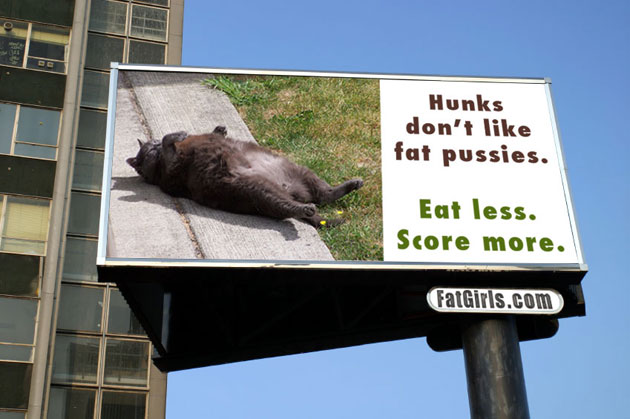 Scientists have found a way to help save the lives of girls under the age of 20. Their father or authority-figure must hit them and humiliate them into submission from a young age. The hitting is an unpleasant duty. But someone has to do it. It’s called tough-love. And before the goodies start complaining, they should look at the statistics in relation to the trial program. 1) Not a single girl has ever died from the beatings. All parents and guardians register under a voluntary code of conduct, and they agree never to draw blood, and only to hit the girls when they are caught smoking or when they have smoke on their breath. 2) As a result of this beating, fewer girls aged between 17 and 20 are smoking, which means that fewer girls are dying of cancer. Last year, within the test group of 2,747 girls who were subjected to the beatings, 129 stopped smoking within twelve months. Although the government-run campaign used $2 million of public funds, the costs pale next to the overall long-term burden of smoking-related diseases. The Campaign Director said that there was a drop in the number of girls who smoked, from which one could assume that the program must have saved lives as well as potential medical expenses.
Scientists have found a way to help save the lives of girls under the age of 20. Their father or authority-figure must hit them and humiliate them into submission from a young age. The hitting is an unpleasant duty. But someone has to do it. It’s called tough-love. And before the goodies start complaining, they should look at the statistics in relation to the trial program. 1) Not a single girl has ever died from the beatings. All parents and guardians register under a voluntary code of conduct, and they agree never to draw blood, and only to hit the girls when they are caught smoking or when they have smoke on their breath. 2) As a result of this beating, fewer girls aged between 17 and 20 are smoking, which means that fewer girls are dying of cancer. Last year, within the test group of 2,747 girls who were subjected to the beatings, 129 stopped smoking within twelve months. Although the government-run campaign used $2 million of public funds, the costs pale next to the overall long-term burden of smoking-related diseases. The Campaign Director said that there was a drop in the number of girls who smoked, from which one could assume that the program must have saved lives as well as potential medical expenses.

So there you have it. Hit your girls. The television, print, and radio campaign was so popular that almost every other media organisation around the world had reported about it. The TV ad shows a father slapping his daughter on her face. The mother hears the scream and she calls out from the kitchen, ‘Don’t tell me Sally is smoking again?’, to which the father responds, ‘She’ll soon learn’. The controversial campaign has drawn criticism that teenage boys are now smacking their female friends at school whenever the girls are seen doing something wrong. One mother complained to the advertising standard bureau, saying, ‘My daughter was minding her own business at a sports carnival. She was trying to shoot a goal, but missed. A 14-year-old boy came up to her and smacked her across the face, saying that she must learn to play better’. The advertising standards bureau investigated the case and asked the advertiser to respond. The advertiser said that the community was behind the campaign because it saves lives. The advertiser said, ‘No family wants to see their daughter suffer with lung cancer. We are not advocating that teens ought to hit girls for no reason at all. In our ad, we never show a boy hitting a girl. In fact, there are no boys in the shot. Everyone whom we have surveyed has agreed that the ad is not condoning violence against women. Viewers are smart enough to see that the message is aimed at helping girls to stop smoking. The community is sick of seeing females suffering with cancer and emphysema, and nicotine-related debilitating diseases. Besides, we are not advocating that boys hit girls for any and all offences. We are just saying that fathers must hit their daughters when they smoke. The community can see that the message is not about violence, but about love and care. Anyone who does not support our campaign is really saying that they do not care about the thousands of girls and young women who take up smoking each year.’
![]()

![]()
The advertising agency won numerous awards for the ‘She’ll soon learn’ campaign. The account director, Andre Franks, said, ‘Almost every TV and radio station around the world has featured our ads. The publicity has been priceless. In fact, we were thrilled to see the campaign spill into other important areas of civil society. People have realised the importance of an authority figure. Juniors are recognising the value in discipline. Surveys show that although they do not like being hit, young people appreciate being reprimanded when they do things wrong. Our surveys prove this.’ Mr Franks said that the campaign has crossed gender boundaries, and now his message is being used for all sorts of discipline across a range of societal and business issues. ‘Young people today are not reaching their full career potential because they have no father-figure at work,’ added Mr Franks. ‘A hotel chain in Germany now encourages tough-love in the workplace. The chain has reported a sharp increase in quality control. Posters in the workplace remind apprentices that they will be supervised and disciplined for their own good. In fact, organisations now use the ‘You’ll soon learn’ slogan as part of their recruitment campaign, to assure junior applicants that they will be nurtured on the job.’

My dear reader, everything you have read above is almost (but not quite) fictitious. It is similar in nature to the absurdity of the real ad campaign that uses the pinkie to suggest that young drivers ought to slow down. I will show you why the campaign is damaging and demeaning and no different from the scenario above. If you found the paragraphs above to be unacceptable, then please follow me as I explain to you why the ‘No one thinks big of you’ campaign is outrageous. That campaign by the RTA (Roads and Traffic Authority) is similar to, and just as absurd as, the story above about the need to hit young girls.
If the above did not stir you, then please stop reading now, because I would have nothing to say to you.
If you are not going to read this article word-for-word, please refrain from reading it at all.
The level of debate in our country seems to be devoid of careful intellectual engagement. As a result, we end up with stupid retorts being flung back and forth, with tit-for-tat simple misleading and self-serving statements that do nothing for rigourous thinking.
The RTA and its advertising agency ‘Clemenger BBDO’ along with the Advertising Standard Bureau have refused to see anything wrong with the ad that depicts a girl raising her pinkie finger at a speeding teenager. The advertiser says that the ad saves lives. Let us explore the following issues:
1) Is the ad sexist?
According to the RTA and the Advertising Standards Bureau, the ad is not sexist. I say that it is sexist, demeaning, damaging, and deplorable. Here is how to test the question. Suppose that girls, more than boys, are dying on the roads as a result of speeding. Suppose that we want to create a new ad that will drive the message home to girls that they should not speed. So, an ad directed at girls, must speak to girls, and make sense to girls and be relevant to girls, and must be hard-hitting and shocking and penetrating to such a degree that it will change their behaviour. Assuming that the pinkie ad had never existed, would we design an ad wherein we see a girl-driver speeding, then a teenage boy in the street, fearing for the girl’s safety, raises his pinkie at her while the ad says, ‘No one thinks big of you’. Would this message, three years ago (before the controversy of this campaign), have worked as a message to young female drivers? Would it even work now after all the exposure? No! Can you imagine a meeting at which the advertiser asks, ‘What has a pinkie got to do with girls driving fast? What’s the inference to the word “big”?’ Neither the ad, nor the message, nor the gesture, nor the tag-line would have worked if the target audience were female. End of story. This is the test. If that ad would not have worked for girls, then it was specifically targeted at boys. When one thing is specifically targeted at a special group based on gender, that makes it sexist. End of story. The ad is sexist. That breaks section 2.1 of the Australian Association of National Advertisers’ Code of Ethics which requires ads to treat sex and sexuality with sensitivity. There is nothing sensitive about an ad that meanders from the ‘driver’ to his ‘penis’. The ad is saying that a bad driver is a bad person. Is a bad person someone who is Asian? No. Is a bad person someone who is fat? No. Is a bad person someone who is going bald? No. The ad says that a bad person is someone with a small penis. Anyone who has a small penis is not much of a man. We don’t think much of anyone with a small penis, and we do not think much of anyone who is a bad driver. The ad places ‘bad drivers’ and ‘people with small dicks’ in the same category.
It is my opinion that this ad must be taken off the air because it is sexist and demeaning. However, you might wish to condone sexist ads, in which case, let’s take the gloves off and start allowing sexism all over the place. If you agree that this ad is sexist, and if you are saying that it is okay to stay on the air, then you are agreeing that it is okay to be sexist sometimes. If it saves lives, let us be sexist. Well then, using this logic, if hitting girls stops them smoking, and if this saves their lives, then hitting girls should be acceptable for their own good.
Our society disapproves of sexism. If you vote to keep this ad on the air, this would un-do decades of work by wise people who have taught us that civilised societies must not discriminate based on gender. If we accept sexism, we would go back to the dark-ages and say that women must stay at home, not smoke, not take important roles in society, and not enter pubs. That’s all very healthy for women. No Olympics, no smoking, no drinking, and (as is the case in some countries) no driving! How can something so good for women be bad for them? Bring on sexism, or take that ad off the air, because it talks to men about men’s private parts. It talks about the penis, and worse, it talks about the size of the penis, and worse still, it says that a small penis is bad.
A weak-minded person clutching at straws would remind me that the ad has to target males because the males are dying on the road due to speeding. Indeed, if an ad must target a certain group, for a certain reason, it must speak to that group without humiliating another group. The ad is not sexist because it speaks to males about slowing down. It is sexist because it is saying that having a small penis is bad. In the long term, it translates into a derogatory insult against any boy who does anything of which his female friends disapproves. The pinkie becomes a gesture that puts down boys and teenage males when they displease others. We get to the point, at which we have already arrived, where female teens will give a bloke a pinkie whether or not he is driving. I have seen girls use the gesture to demean boys about all manner of things, just like some teens use the word ‘gay’ to refer to something that is not to their liking, and the word ‘sick’ to mean something that is cool.
If cars reflect manhood, then what does a penis reflect? A penis reflects manhood, more so than cars! If young men get behind the wheel of a car and speed to assert their manhood, then how much more would they need to compensate for their manhood now that we have told them that they are ‘less of a man’ on two counts: one is that they are young, and two, they have a small penis. Many teenagers are not happy with the size of their penis, no matter what size it is (they just want it bigger — at least as large as the imaginary size that people seem to expect, or as large as the porno stars’ member).
My goodness, women have been arguing for decades that magazines must not air-brush photos of models. Women do not want their daughters thinking that they are lacking beauty if they do not have perfect figures and perfect skin and perfect teeth and perfect boobs. Many lobby groups have tried to change the skewed body-image. Sensible women have been trying to suggest that it is okay to have a figure that is not similar to that of a super model. Imagine all the fuss that women have made about the true shape of an average body. Don’t forget that bodies are out in the open for all to see. We all share the problems and challenges of body image. In this struggle, the body is on display for all to see. Whereas a man’s private penis, which is the primary thing that reflects his manhood (and represents his sexual pleasure or fantasy, which he thinks about a million times per second), is now being denigrated and measured in terms of centimetres and inches, and judged to be of no value if it is small. This RTA campaign asserts that size does matter. If you have a small one, you are not so much of a man, and no-one thinks big of you. The ad is accusing the man of compensating for his small penis. In effect, the ad is saying something like, ‘Hey, you are speeding because you are trying to impress us so that we would think that you are a big man, and men are only real-men when they start to shave and when their dick is large… but you must have a small penis because you are trying hard to make me think that you are big. If you are showing off to such a degree, you must really have a small penis, and so you are a loser. I can tell by your bold driving that you are lacking in your manhood. The fact that you are speeding means that you are trying to tell me that you have a big dick, but in fact, I do not think that you have a big dick. I do not think that you are a man. I do not think big of you. No-one thinks big of you. I do not like you when you speed. I dislike you so much that I am angry and I need to insult you to get my point across. Just like you are trying to tell me that you are a man, I am trying to tell you that I am angry about your behaviour. And the best way that I can show you my anger is to insult you. The grandest insult that I can think of is to say that you are a poof… no not good enough; that you are a black nigger… no not good enough; that you are a girl… no not nice; that you are Muslim terrorist wog… no not quite right. I know, the grand insult is this: you have a small dick… that ought to do it… that’s nasty enough.’
Men have a mind-blowing concern about the size of their penis. They cannot change its size. They can change the colour of their hair. They can change the country in which they live. They can decide to drink alcohol or not. They can decide to get a tattoo. But they cannot control the size of their penis. So this ad is about dicks. And it says that you have a small cock if you speed. How, in the name of all that is sensible, can you tell me that this ad is not sexist? (Oh but it works!) I hear the whispers. They want us to believe that the ad works. That is yet to be proved, but let us agree that it might work. If the ad works, are we saying that sexism is okay? Is that the argument? If hitting girls from a young age shows a reduction in those who take up smoking, then can we please hit girls, because it works? But it works! Fear not. No father will draw blood. The voluntary code of conduct will see to that.
Over the years, I have discovered that people have the capacity to be empathetic, but only when they understand. Sadly, humans find it difficult to understand something that does not hit their personal raw nerve. For example, if you love cats, you would find it unfathomable how someone can be terrified/petrified of cats. If you are not scared of spiders, or if you have no fear of heights, you would find it comical to watch someone exhibit their phobias about such seemingly insignificant matters. With this in mind, there might be people who still have not cottoned-on to the severity of this RTA pinkie campaign, and they might dismiss it as a bit of harmless fun. One mother of two teenage girls said to me, ‘Look, the ad is effective.’ I asked if she could understand that boys with a below-average penis will feel inadequate. She replied, ‘Who cares. Size does not matter. They should know that. They should understand that society does not care about penis size.’ How can she assert that size does not matter, when apparently, according to her, size matters so much that it matters so much that it matters so much that it is used as an arresting insult that, according to her, is causing boys to slow down. If something does not matter, then what’s the fuss all about? If the size of a penis did not matter, then the boy would not care about the message of the ad. If the ad is working, then the insult is working, which means that size does matter. Which brings us back to square one: humiliate a guy about his manhood, while he is in the process of trying to assert his manhood. This is a circular problem that will detonate somewhere else. This campaign only shifts the problem. Here is an example: suppose that the Mexican government can put a stop to the drug trade by legalising drugs and providing them at no cost at every street corner. Will drug-lords in that country retire? No! They will go and find another lucrative industry and start selling fake passports or fake banknotes or stolen diamonds or firearms. A criminal will shift his attention to another trade if his industry is shut down. Equally, a child whose ego needs stroking will find another way to assert his manhood, more so than ever before, now that he has been told that no-one thinks big of him because he has a small penis. The problem has just doubled! He started out trying to show off. He started out trying to seek attention. He not only fails at this effort, but is now told that he now has two problems. The first is that he is not inflating his ego and his manhood, and the second is that by his actions, he has gone backwards, and he has not only NOT impressed the chicks, but that the chicks have called his bluff and demeaned him. Two steps back, my dear reader! Subtle. Powerful. Damaging!
Anyway, for those who cannot empathise, here are some ads that are similar to the pinkie ads. If you cannot see the drama associated with demeaning a small penis, then can you see the drama associated with demeaning: fat girls and their vaginas; black men and their social standing; Muslims and their religion; and Irish men and their nationality?
![]()

![]()

![]()

![]()

![]()
2) Is the campaign humiliating?
The Australian Advertising Standards Bureau had received complaints about the RTA pinkie campaign. It reviewed the matter three times: in July 2007; June 2008; and October 2009. On all three separate occasions, with separate arguments from the public, the Bureau dismissed the complaints, saying that the ads are not demeaning. In the 2009 review, the Bureau said, ‘The Board also noted that the use of “the pinkie finger” sign in the advertisement would be understood by most people in the community to be reflective of the juvenile behaviour demonstrated by the person, rather than specifically to the size of his penis or his manhood.’
Yet, in the 2007 review, in response to the pinkie referring to the penis, the Bureau said, ‘The Board considerred (sic) that most people would understand this to mean, not that the person has a small penis per se, but rather that the person is less of a man…’
In 2007 the Bureau admits that the pinkie sends the signal to the driver that he is ‘less of a man’, whereas in 2009 the Bureau denies that the pinkie is referring to ‘manhood’.
How bizarre. The slogan is ‘No one thinks big of you’. So to what does ‘big’ refer? It must either refer to his manhood or to his penis, and the Bureau says that it refers to neither. How weak is that argument?
The Advertising Standards Bureau’s website states, ‘The Advertising Standards Bureau administers a national system of advertising self-regulation through the Advertising Standards Board and the Advertising Claims Board.’ It is interesting that this is all self-regulating. In other words, advertisers are trusted to regulate themselves. I am not sure that the United Nations would accept Nuclear Weapons self-regulation. What would happen if someone were concerned about Iran’s nuclear enrichment program? If it were self-regulated, a person would send a letter to the board and outline the concerns. Would the international community be satisfied that concerns and complaints were reviewed by the Iranian government?
Anyone objecting to self-regulation could be accused of insulting the Board. Not so. We are saying that we must remove the onus from people about whom we are complaining. It is not fair to put people in this position. Justice must be done, and be seen to be done, and be seen to be impartial, and be impartial, so that no-one can cast aspersions.
The Advertising Standards Bureau has an Independent Reviewer. I was unable to find out how many cases are referred to the Independent Reviewer, and of those cases, how many the Independent Reviewer managed to overturn. I would like to study those numbers.
The Advertising Standards Bureau is funded by the advertising industry. This makes it a self-funded, self-governed Bureau. It has a Corporate Board of Directors, who, at the time of writing, comprised: Mr Ian Alwill, Director Australian Association of National Advertisers and Director of Marketing Communications, Nestle Australia; Mr Michael Duncan, Agency Client Director, Nova 106.9 Radio; Mr Hayden Hills, Group Manager Finance Operations, Allianz Insurance Australia Ltd; Mr John McLaren, Director, Clemenger BBDO (the agency behind the RTA’s pinkie campaign); and Mr John Sintras, Chief Executive Officer, Starcom Media Vest Group.
The other group within the Bureau that presumably makes decisions about complaints is the Advertising Standards Board. Its members, at the time of writing, are shown below. Not all of these members were on the Board from the time that the first complaint was heard and dismissed in 2007. However, they were all members when the October 2009 complaint was heard and dismissed.

![]()

I am not sure how often these fine citizens meet. We are told that they meet ‘regularly’. I am not sure how they have the time to read and assess approximately 2,000 complaints each year. I am not sure if all twenty members meet at the same time. The reason that I show you who these people are, is so that you can wonder with me how this group of eminent Australians failed to see that driving has nothing to do with a penis. I would not have gone this far to list them had it not have been for the fact that I believe that this very group saw fit to ban a Nando’s Chicken ad in which a buxom woman orders double-breasted chicken and chips. The plate is delivered to her and placed at her table. She looks down and declares that the chips are missing. The waitress points out that the chips are on the plate. We, the viewers, then realise that the chips were not visible to the customer because she has big breasts, and when she looked down, she could not see the whole plate. Her big breasts obscured the chips on the plate. This group of people, I presume from all that I could work out, banned the ad because it was sexist. A beautiful lady, with all that God had given to her, looks down and does not see the chips. The play-on-words refers to the double breast chicken burger. A woman’s breasts are not like a woman’s vagina, and as such, not like a man’s penis. The ad neither demeans women nor breasts. Nothing derogatory is said or insinuated. But okay, for the sake of argument, I can accept that the ad might have offended some people. Who knows how many? Three? Okay. But how on earth can it be said that the Nando’s ad was offensive, yet the Board ruled that the RTA pinkie ad was not equally offensive or demeaning or degrading to men? That decision is incomprehensible. It makes me want to read or hear the word-by-word argument/debate/deliberation. The Bureau says that it wishes to be transparent. I would suggest that meetings ought to be recorded so that we can see and hear the adjudication in action.
The Nando’s official Case Report of April 2009 states the following as one of the complaints against the Nando’s TV ad: ‘It not only completely objectifies women, it asserts that women’s breasts, therefore women, are something to be eaten. It is also sexually inappropriate for the time slot, regardless of the objectionable nature of the ad as a whole.’ The report then states, ‘…the Board determined that the woman was depicted in the advertisement in such a way that was objectifying and demeaning and crossed the line in terms of discrimination towards women…’
3) Is the campaign focussing on the penis?
One person who complained to the Australian Advertising Bureau said, ‘Genitals of young men have nothing to do with bad driving. The add (sic) is designed to be sexist and humiliating to men. The add (sic) encourages and sanctions from a government body the sexual harassment of young men with these crude, sexist and offensive behaviours.’ In response, the Roads and Traffic Authority, being the advertisers, responded to the Bureau, saying…
NOTE: This article was becoming to large, so it is split into two parts. Please read Part 2 here that shows evidence of an RTA website that is fixated on the penis. Listen to this from Mini-mouth Mandy, an RTA blow-up sex doll that humiliates men and their small penis.
![]()
![]()
Read about this in Part 2 by clicking here.
![]()
This article was written by Jonar Nader, author of ‘How to Lose Friends and Infuriate People’. Jonar is a consultant whose website is www.LoseFriends.com



Comments are closed.